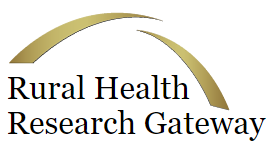January 9, 2026

Research Alert: Availability of Hospital-Based Obstetric Services in the United States by County, 2010-2023: A State-by-State Report
Between 2010 and 2023, there have been continued declines in access to hospital-based obstetric services in both rural and urban U.S. communities. During this time, 269of the 3,144 counties (8.6%) in the U.S. lost all hospital based obstetric services; 26 of the counties that lost these services (21 of which were rural) experienced a recent loss, between 2022 and 2023. These losses have resulted in 60% of rural counties and 38% of urban counties not having any hospital-based obstetric services by 2023. Access to obstetric care is especially limited in less populated rural counties. Among rural noncore counties (counties without a town population >10,000), 148 counties (11%) lost all hospital based obstetric services between 2010 and 2023(15 of these losses occurred recently, between 2022 and 2023), resulting in only 24% of rural noncore counties having any hospital-based obstetric services by 2023.
Additionally, there is variation across states in county-level hospital based obstetric services availability. Between 2010 and 2023, there were nine states where more than ten counties lost all hospital-based obstetric services. In Iowa, 20 counties lost all hospital-based obstetric services during this time. In the most recent year of data available (between 2022 and 2023), obstetric service losses at the county level were concentrated in California, Idaho, Indiana, Minnesota, and Nebraska, which lost services in tow counties each. Illinois and Kansas lost services in three counties (all of which were rural), and Ohio experience recent losses in four counties (two of which were rural). Only one state (North Dakota) recently gained hospital-based obstetric services in 2023 in a county without those services in 2022. This gain was in a rural noncore county.
Click Here to Read Full Brief


